-
 Bitcoin
Bitcoin $115100
1.27% -
 Ethereum
Ethereum $3675
2.71% -
 XRP
XRP $2.995
1.45% -
 Tether USDt
Tether USDt $1.000
0.02% -
 BNB
BNB $769.8
2.64% -
 Solana
Solana $168.0
3.25% -
 USDC
USDC $0.9999
-0.01% -
 TRON
TRON $0.3371
1.48% -
 Dogecoin
Dogecoin $0.2051
3.36% -
 Cardano
Cardano $0.7394
2.30% -
 Hyperliquid
Hyperliquid $38.15
0.42% -
 Stellar
Stellar $0.3966
-0.36% -
 Sui
Sui $3.486
2.93% -
 Chainlink
Chainlink $16.72
2.52% -
 Bitcoin Cash
Bitcoin Cash $568.0
4.36% -
 Hedera
Hedera $0.2440
2.59% -
 Ethena USDe
Ethena USDe $1.001
0.04% -
 Avalanche
Avalanche $22.16
2.06% -
 Litecoin
Litecoin $119.1
-0.73% -
 UNUS SED LEO
UNUS SED LEO $8.991
0.04% -
 Toncoin
Toncoin $3.232
-0.39% -
 Shiba Inu
Shiba Inu $0.00001233
2.82% -
 Uniswap
Uniswap $9.717
2.53% -
 Polkadot
Polkadot $3.664
1.85% -
 Dai
Dai $1.000
0.01% -
 Monero
Monero $281.2
-3.89% -
 Bitget Token
Bitget Token $4.350
1.55% -
 Cronos
Cronos $0.1428
5.07% -
 Pepe
Pepe $0.00001050
3.68% -
 Aave
Aave $262.3
3.54%
How to receive cryptocurrency in Exodus? How long does it take for the transfer to arrive?
To receive crypto in Exodus, select the currency, generate a receiving address, and share it securely; transfer times vary based on blockchain confirmations and network congestion.
May 03, 2025 at 01:00 pm
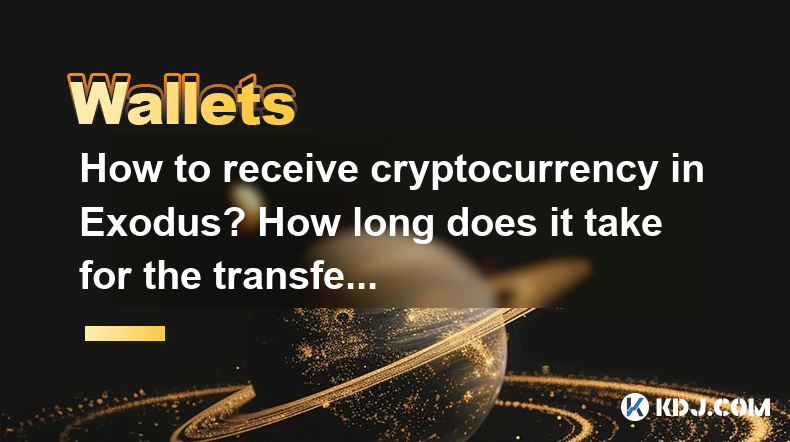
Receiving cryptocurrency in Exodus is a straightforward process, but understanding the timeline for transfers can help manage expectations. This article will guide you through the steps to receive cryptocurrency in Exodus and explain the factors that influence the duration of the transfer.
Preparing to Receive Cryptocurrency in Exodus
Before you can receive cryptocurrency, you need to ensure that your Exodus wallet is set up and ready. Exodus is a multi-currency wallet that supports a wide range of cryptocurrencies, including Bitcoin, Ethereum, and many others. To start, make sure you have the latest version of the Exodus wallet installed on your device.
- Download and Install Exodus: If you haven't already, download the Exodus wallet from the official website and follow the installation instructions for your operating system.
- Create or Restore a Wallet: Open Exodus and either create a new wallet or restore an existing one using your 12-word recovery phrase.
- Secure Your Wallet: Set up a strong password and consider enabling additional security features like two-factor authentication if available.
Receiving Cryptocurrency in Exodus
Once your wallet is set up, you can proceed to receive cryptocurrency. Here's how to do it:
- Select the Cryptocurrency: On the main screen of Exodus, click on the cryptocurrency you wish to receive. For example, if you want to receive Bitcoin, click on the Bitcoin icon.
- Generate a Receiving Address: Click on the "Receive" button. Exodus will generate a unique receiving address for the selected cryptocurrency. This address is what you will share with the sender.
- Copy the Address: You can copy the address by clicking on the "Copy" button next to the address. Alternatively, you can scan the QR code if the sender supports this method.
- Share the Address: Share the copied address or QR code with the sender through a secure method. Never share your private keys or recovery phrase with anyone.
Understanding Transfer Times
The time it takes for a cryptocurrency transfer to arrive in your Exodus wallet can vary significantly depending on several factors. Here are the key elements that influence transfer times:
- Blockchain Confirmation Times: Each cryptocurrency has its own blockchain with different confirmation times. For example, Bitcoin typically requires 6 confirmations, which can take about an hour, while Ethereum usually requires 12 confirmations, which can take around 15 minutes.
- Network Congestion: If the blockchain network is experiencing high traffic, transactions may take longer to process. This is particularly common with popular cryptocurrencies like Bitcoin during peak times.
- Transaction Fees: Higher transaction fees can expedite the processing of your transaction. If the sender opts for a lower fee, the transaction might take longer to be confirmed.
- Sender's Wallet: The speed at which the sender's wallet processes and broadcasts the transaction can also affect the overall transfer time.
Monitoring Your Transaction
After the sender has initiated the transfer, you can monitor the progress of your transaction in Exodus:
- Check Transaction Status: Go to the "Transactions" tab in Exodus to see the status of your incoming transaction. It will show as "Pending" until it is confirmed on the blockchain.
- Blockchain Explorers: For more detailed information, you can use a blockchain explorer. Copy the transaction ID (TXID) from Exodus and paste it into a blockchain explorer for the specific cryptocurrency. This will show you the exact number of confirmations and estimated time until completion.
Receiving Different Types of Cryptocurrencies
Exodus supports a variety of cryptocurrencies, and the process for receiving them is similar, but there are some nuances to be aware of:
- Bitcoin and Bitcoin Cash: Both use similar blockchain technology, but they are separate networks. Ensure you provide the correct address for the cryptocurrency you wish to receive.
- Ethereum and ERC-20 Tokens: When receiving Ethereum or any ERC-20 token, make sure to use the correct Ethereum address. ERC-20 tokens will appear in your Ethereum wallet within Exodus.
- Other Cryptocurrencies: For other supported cryptocurrencies like Litecoin, Ripple, or Cardano, the process is the same as described above. Just select the appropriate cryptocurrency in Exodus and generate the receiving address.
Troubleshooting Common Issues
Sometimes, you might encounter issues when receiving cryptocurrency in Exodus. Here are some common problems and their solutions:
- Transaction Not Showing Up: If the transaction does not appear in your Exodus wallet, double-check the receiving address you provided to the sender. If the address was correct, wait a bit longer as it might still be processing.
- Transaction Stuck: If a transaction seems to be stuck, it could be due to low transaction fees or network congestion. In some cases, the sender might need to increase the fee to expedite the transaction.
- Incorrect Cryptocurrency Received: If you receive the wrong cryptocurrency, contact the sender immediately. They might be able to reverse the transaction if it hasn't been confirmed yet.
Frequently Asked Questions
Q: Can I receive cryptocurrency on multiple devices with the same Exodus wallet?
A: Yes, you can access your Exodus wallet on multiple devices using the same 12-word recovery phrase. However, ensure that you keep your recovery phrase secure and never share it with anyone.
Q: What should I do if I accidentally send cryptocurrency to the wrong address in Exodus?
A: If you send cryptocurrency to the wrong address, it is generally not recoverable. Always double-check the receiving address before sending any cryptocurrency. If the transaction has not been confirmed, you might be able to contact the recipient to reverse it, but this is not guaranteed.
Q: Is there a way to speed up a pending transaction in Exodus?
A: The speed of a transaction is determined by the sender's chosen transaction fee and the current state of the blockchain network. If a transaction is taking too long, the sender can try to increase the fee through a process called "transaction acceleration" or "child pays for parent" (CPFP), depending on the cryptocurrency and wallet used.
Q: Can I receive cryptocurrency in Exodus without an internet connection?
A: No, you need an internet connection to receive cryptocurrency in Exodus. The wallet needs to be online to generate a receiving address and to monitor the blockchain for incoming transactions.
Disclaimer:info@kdj.com
The information provided is not trading advice. kdj.com does not assume any responsibility for any investments made based on the information provided in this article. Cryptocurrencies are highly volatile and it is highly recommended that you invest with caution after thorough research!
If you believe that the content used on this website infringes your copyright, please contact us immediately (info@kdj.com) and we will delete it promptly.
- HashFlare Founders Face the Music: Jail Time Looms?
- 2025-08-07 14:30:12
- Toshi on Binance.US: A Memecoin's Big Break
- 2025-08-07 14:30:12
- Bitcoin, SPAC Mergers, and Parataxis: A New Yorker's Take on Crypto's Wall Street Moment
- 2025-08-07 14:50:27
- Bitcoin, Collateral, and Loan Strategies: A New York Minute on the Future of Finance
- 2025-08-07 14:50:27
- Ethereum's Bullish Surge: Reclaiming Crypto Leadership, a New York Minute
- 2025-08-07 14:55:12
- BlockDAG, Litecoin, and Cardano: Charting the Course in Crypto's Dynamic Waters
- 2025-08-07 09:09:06
Related knowledge
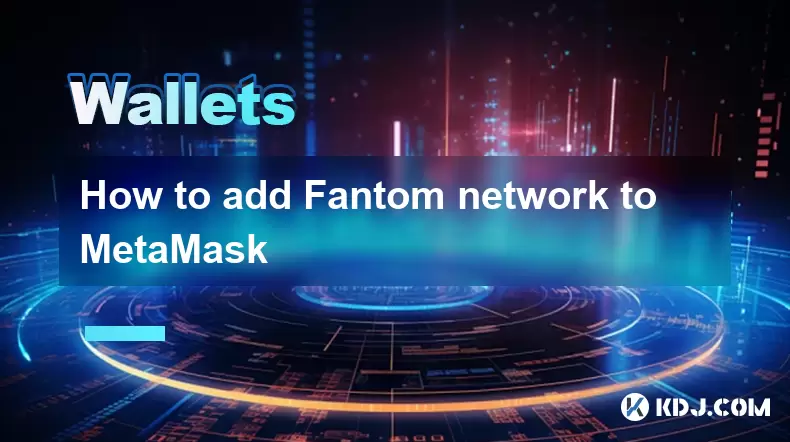
How to add Fantom network to MetaMask
Aug 07,2025 at 08:21am
Understanding the Fantom Network and MetaMask IntegrationThe Fantom network is a high-performance, scalable, and secure blockchain platform designed f...
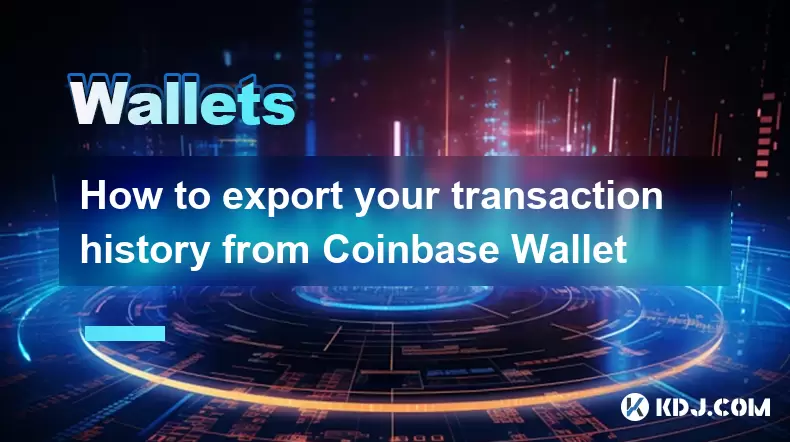
How to export your transaction history from Coinbase Wallet
Aug 07,2025 at 06:50am
Understanding Coinbase Wallet and Transaction HistoryCoinbase Wallet is a self-custodial cryptocurrency wallet that allows users to store, manage, and...
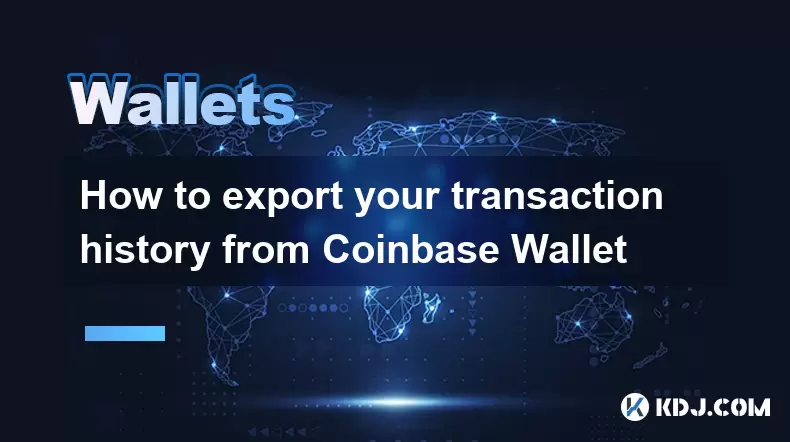
How to export your transaction history from Coinbase Wallet
Aug 07,2025 at 08:49am
Understanding Coinbase Wallet and Transaction HistoryCoinbase Wallet is a self-custodial cryptocurrency wallet that allows users to store, manage, and...
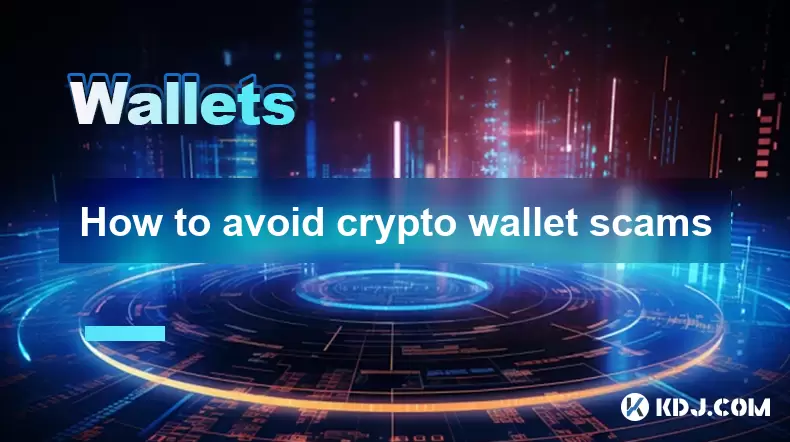
How to avoid crypto wallet scams
Aug 07,2025 at 02:21pm
Understanding Common Types of Crypto Wallet ScamsCrypto wallet scams come in various forms, each designed to exploit user trust, technical ignorance, ...
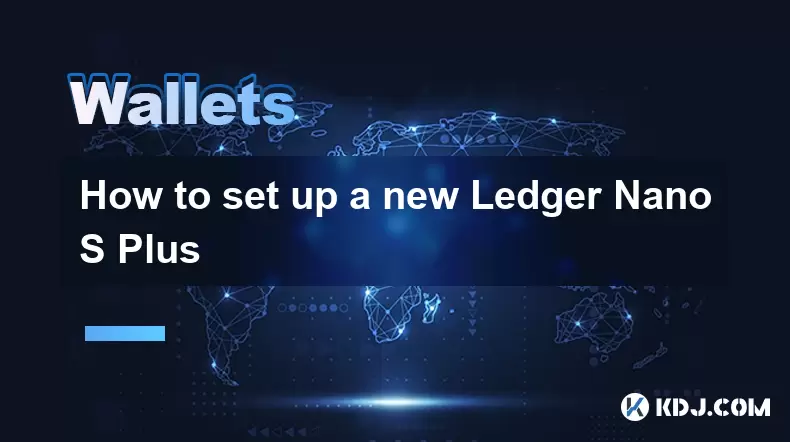
How to set up a new Ledger Nano S Plus
Aug 07,2025 at 06:01am
Unboxing and Initial InspectionWhen you receive your Ledger Nano S Plus, begin by carefully unboxing the package. Inside, you should find the Ledger N...
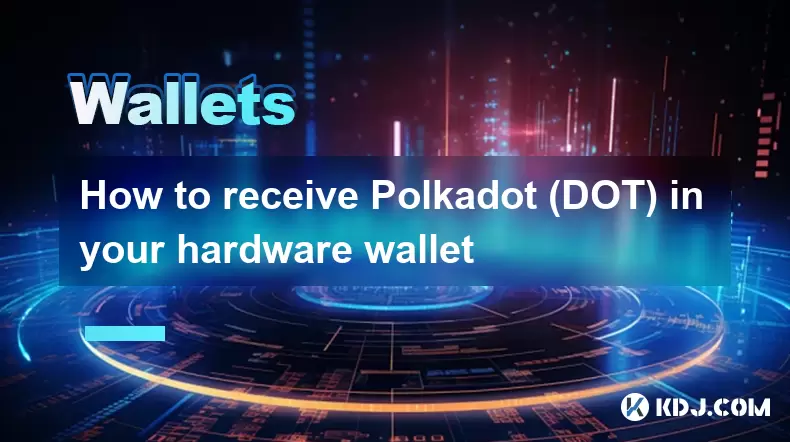
How to receive Polkadot (DOT) in your hardware wallet
Aug 07,2025 at 07:03am
Understanding Polkadot (DOT) and Hardware Wallet CompatibilityReceiving Polkadot (DOT) into a hardware wallet begins with understanding the ecosystem ...

How to add Fantom network to MetaMask
Aug 07,2025 at 08:21am
Understanding the Fantom Network and MetaMask IntegrationThe Fantom network is a high-performance, scalable, and secure blockchain platform designed f...

How to export your transaction history from Coinbase Wallet
Aug 07,2025 at 06:50am
Understanding Coinbase Wallet and Transaction HistoryCoinbase Wallet is a self-custodial cryptocurrency wallet that allows users to store, manage, and...

How to export your transaction history from Coinbase Wallet
Aug 07,2025 at 08:49am
Understanding Coinbase Wallet and Transaction HistoryCoinbase Wallet is a self-custodial cryptocurrency wallet that allows users to store, manage, and...

How to avoid crypto wallet scams
Aug 07,2025 at 02:21pm
Understanding Common Types of Crypto Wallet ScamsCrypto wallet scams come in various forms, each designed to exploit user trust, technical ignorance, ...

How to set up a new Ledger Nano S Plus
Aug 07,2025 at 06:01am
Unboxing and Initial InspectionWhen you receive your Ledger Nano S Plus, begin by carefully unboxing the package. Inside, you should find the Ledger N...

How to receive Polkadot (DOT) in your hardware wallet
Aug 07,2025 at 07:03am
Understanding Polkadot (DOT) and Hardware Wallet CompatibilityReceiving Polkadot (DOT) into a hardware wallet begins with understanding the ecosystem ...
See all articles

























































































